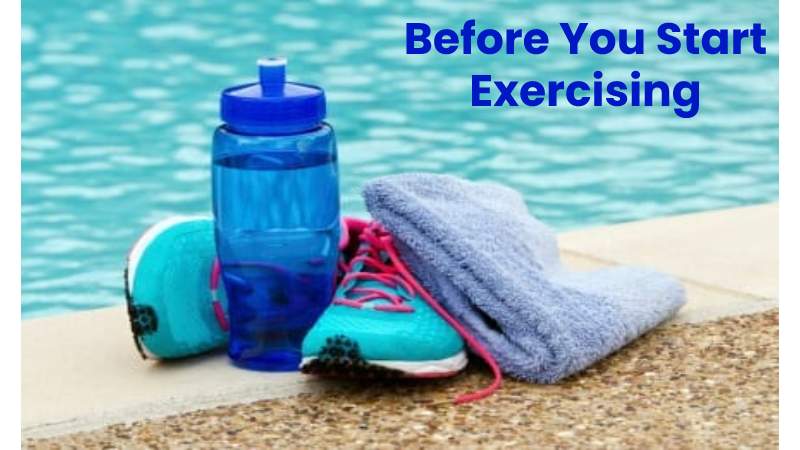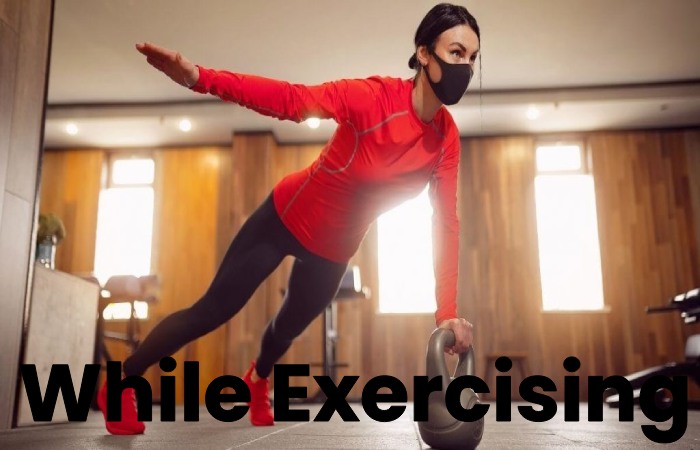Staying Hydrated For Exercise
When you exercise, you may be surprised to learn that you can lose up to 500ml of fluid in just half an hour – that’s about the same amount of liquid as half a liter of milk. You lose this mainly by sweating, and in the air, you exhale. If you don’t replenish your fluid level, you can quickly become dehydrated, affecting your health and performance. Make sure you drink the correct amount of fluids before, during, and after exercising, and you will keep your performance at peak performance.
Table of Contents
Before You Start Exercising

Ensuring you are well hydrated before exercising is important, especially if you are in a warm environment. If you remain dehydrated before you even start, your internal temperature will rise faster, and your heart determination has to work harder than usual. It can hurt your performance and can even lead to serious illnesses like heat stroke and heat stroke.
If you have replenished your fluid levels during the day and have not exercised for 8-12 hours, you should be hydrated adequate to exercise at any time of the day. The easiest way to check if you are well hydrated is to see the color of your urine. Urine should be pale in color; the darker it is, the more dehydrated you are. Some factors can change the color of your urine, such as vitamin supplements; therefore, this test may not be reliable. If your urine is murky or you think you are dehydrated, you should slowly drink fluids for at least four hours before exercising. If you are not urinating before your urine is still dark, drink more fluids for about two hours before exercising. It will allow enough time for your body to absorb liquids. You may need to try different amounts and periods to achieve this.
While Exercising
As little as two percent dehydration can hurt your performance, so it is important to replenish your fluid level.
It is best to drink at first and then at regular intervals while you exercise. How much you need to drink will depend on how much you sweat, how long you exercise, and of course, whether you have the opportunity to drink while exercising. If you plan to exercise for more than an hour, carbohydrate-containing sports drinks or even just an extract-based soda can do the trick, as the sugar provides the extra energy and the salts help you stay hydrated. You may want to try consuming a sports drink that contains 60-80g of carbohydrates per hour. It will help you avoid injury and keep your training on track.
If you exercise for less than an hour, the best drink to stay hydrated is probably cool water.
It is important not to postpone until you feel thirsty to drink: it will be late, and you will already be dehydrated.
After Exercising
Once your hard work remains done, you are certainly ready for a drink. It will refresh you, but it is important to replenish the lost fluids to return to normal to help your muscles recover. You can calculate how much fluid you lose in a typical exercise session and how much you should drink by weighing by hand before and after exercise and comparing the weights. For every kilogram of bodyweight you misplace, you need to drink about 1.5 liters of fluid. The sooner you start to replenish the liquid, the sooner you will recover from exercise.
Sports drinks or just water with a pinch of salt will help you regain your fluid level. Try to eat something salty: it may sound strange, but this will naturally make you thirsty so that you will drink more and therefore rehydrate faster. Please do not drink alcohol or caffeinated beverages immediately after exercising because they are diuretics (they remove water after your body by increasing the amount of urine your kidneys make).
Excessive Drinking
Although you may feel so thirsty during and after exercise that you think you could drink gallons of water. It is important to remember that heavy drinking can be harmful and can cause a condition called hyponatremia. It is when excess water dilutes the salts in your body. And your cells become inflamed, leading to several health problems. Symptoms of hyponatremia include confusion, disorientation, headache, malaise, vomiting, lack of coordination, and muscle cramps. At worst, severe hyponatremia can lead to coma, heart failure, and even death.
Sport Drinks
The variety of different sports drinks can be overwhelming. And you may remain forgiven for not knowing which one to choose or whether they offer any benefits. These drinks replace lost fluid and contain carbohydrates and electrolytes (sodium, potassium, magnesium, and chloride). These provide energy for training, help keep you hydrated, and make the drink taste well. There remain three main types of sports drinks: hypotonic, isotonic, and hypertonic.
What is the difference between Hypotonic, Isotonic, and Hypotonic Drinks?
Hypotonic drinks are low in carbohydrates (less than 4g per 100ml) and remain designed to replace fluids you lose during exercise. Isotonic drinks contain a slight amount of carbohydrates (4 to 8g per 100ml), in addition to replenishing fluids. They also help replenish your body’s carbohydrate stores. It is important if you exercise for more than an hour. Hypertonic fluids have a high concentration of carbohydrates (more than 8g per 100ml). It means that your body absorbs them more slowly than water alone, but it will improve your energy recharge.
If you are reluctant to shell out money for sports drinks, you can easily make your own. Why not try these cheaper version recipes. Do not drink apple juice because it is high in fructose, which can give you a stomachache.
Also read:
Solution of [pii_email_d1312ea8504adaddc88e] Error Code
Search Related
[hydration during exercise]
[tips for staying hydrated]
[hydration for athletes chart]
[drinking water after exercise to lose weight]
[symptoms of dehydration after exercise]
[water loss during exercise]
[hydration and exercise performance]
[hydration in sports performance]

